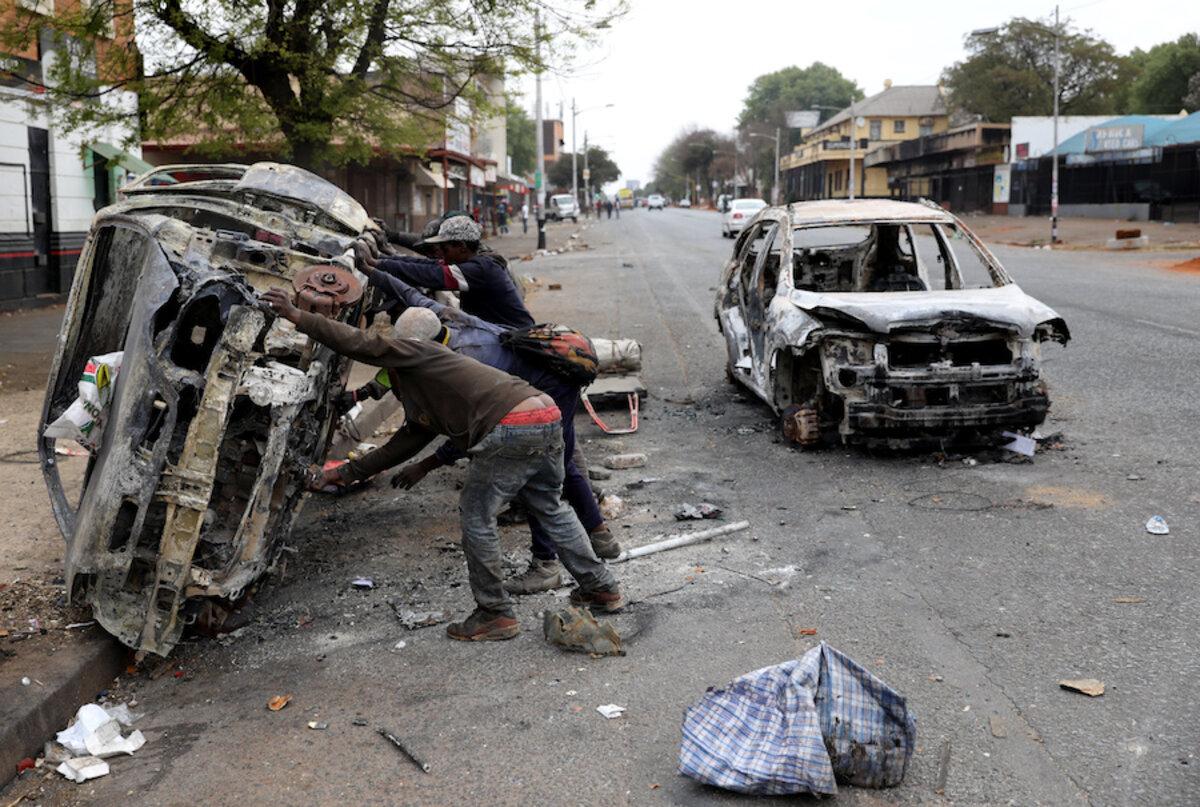When it comes to relics of hate, what is the best way forward? In Fort Worth, some say to tear down an old Ku Klux Klan hall. Other Texans want to use it to honor victims of racial violence and promote healing.
Monitor Daily Podcast
- Follow us:
- Apple Podcasts
- Spotify
- RSS Feed
- Download
 Mark Trumbull
Mark Trumbull
Welcome to your Daily. Today we have stories addressing the relics of hate, an African leader’s complex legacy, one man’s alternative to violence, and rising women in both chess and tennis.
But first, one state governor this week took action on a topic of growing public concern. Gretchen Whitmer ordered an emergency ban on flavored electronic cigarettes, making Michigan the first state to take that step.
Two recent deaths in the U.S. have been linked to vaping. Federal and local officials are investigating a possible link to e-cigarettes in more than 200 reports of pulmonary disease from 25 states. In just the year from 2017 to 2018, the share of 12th graders who reported vaping in the past 30 days doubled, to 1 in every 5.
The surge in teenage use is fueled partly by companies pitching candy or fruit flavors that Governor Whitmer alleges aim to “hook children on nicotine.”
A ban is controversial. In this case it applies to adults as well as kids. It brings on a familiar debate over the boundaries between public health regulation and freedom of consumer choice. And the industry has blamed recent illnesses on illegal vaping pens that contain a marijuana-derived compound.
But some say the larger question behind this debate is how society will face up to the addiction risks of a product that’s often billed as safer than smoking. “Kids have such a poor understanding of vaping products – it’s extraordinary,” Michael Blaha, a professor of medicine at Johns Hopkins University in Maryland, said in a recent online post. “They’re not trying to quit smoking – they’ve never smoked before.”










